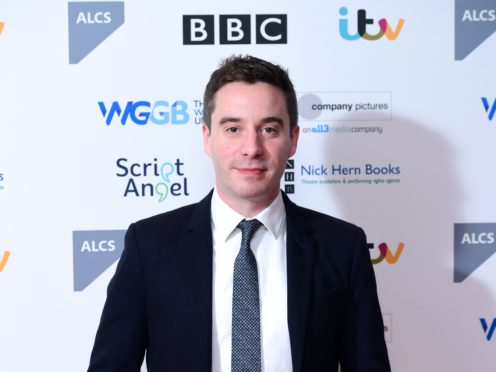Playwright James Graham has issued a stark warning about the future of the theatre industry, saying it will not survive the coronavirus crisis without an “aggressive government bail-out.”
Theatres and arts venues around the country have closed their doors in a bid to slow the spread of Covid-19, and Graham, who is responsible for plays such as Quiz, Ink and This House as well as TV dramas including Coalition and Brexit: An Uncivil War, said he fears for what will be left behind when they are able to reopen.
He told the PA news agency: “I don’t even know if there will be a theatre or film industry that we can recognise when this is all over.”
Updated statement for West End ticket holders. Read the full statement here: https://t.co/qMpyHP1PSk pic.twitter.com/na40VuoJ4d
— Official London Theatre (@london_theatre) March 20, 2020
He added: “It’s a collective art form; you need people around you to see it and do it and there is no middle ground now – if it’s going to survive in any form it will need an aggressive government bail-out and you either do or you don’t do it, there is either theatre or there isn’t anymore.
“So there is kind of a clarity to what we need to ask government to do for it to survive and hopefully they will do it.”
Graham said he is particularly concerned that uncertain times ahead could mean a limiting of creativity and the destruction of opportunities for the less privileged.
He said: “I am already exhausted about the scale of the fight ahead because every industry, every small business, are all in the same situation and it’s obviously very upsetting, but because the theatres were the first to close and probably, because of the very nature of what they are, gathering people together in close proximity, they will be close to being the last buildings to reopen.
“Having been sat in darkness for several months, all of the reserves will have dried up and there will be no money left.
“I am worried, I am worried that to have the political argument to justify that level of arts investment again at a time when the economy will be devastated, that’s difficult.
“I’m worried for what kind of work, what kind of artists, what kind of people, in a more dangerous climate, will be allowed to make the work.
“I think the default naturally goes to safety, rather than invention. I say this as a playwright who comes from a working-class background – working-class actors and artists might be the ones who struggle to find themselves back on those platforms and in those spaces.”
He continued: “We like to think of ourselves as being the best in the world at this, it’s why even A-list Hollywood movies like Star Wars get made here, because we have the skills base.
“That skills base won’t exist in three months’ time without help, because people will have to leave the industry and go and do something else.
“This is one of the last areas where the British still excel all over the world, we are still the ones who win the awards and get to share the work, and that will go without really radical government intervention.”
A spokesman for the Department for Digital, Culture, Media and Sport said: “We are committed to supporting our theatres during this national emergency with help available through the Government’s unprecedented financial package for business, workers and the self-employed.
“We are in regular contact with the arts and culture sector as we work on our ongoing coronavirus response which includes considering further action that may be necessary.”
Graham has adapted his play Quiz, about the Who Wants To Be A Millionaire cheating scandal, into a three-part ITV drama starring Michael Sheen as Chris Tarrant.
The drama will be accompanied by special episodes of the official Who Wants To Be A Millionaire podcast, Final Answer, in which Graham and the cast and producers will discuss the making of the show.
Graham said: “It’s a light-hearted romp through this extraordinary English heist story and we deliberately make a piece of light entertainment about light entertainment.
“But I think there are opportunities to explore some serious questions about the nature of justice and what happens when justice merges with entertainment, and I think about the nature of truth.
“Even when I started writing the play, it was because it felt like a fun vessel in to which to pour all my anxieties about the nature of truth and reality, and how those basic things felt vaguely under threat at the time, the advance of social media, disinformation and fake news.
“I think it taps into those anxieties in a way that I found really helpful to explore.”
Episode 1 of Final Answer – Quiz Special, the official Who Wants To Be A Millionaire podcast will be available on all podcast providers immediately after the show.
– Quiz starts on ITV on Monday April 13 at 9pm.
